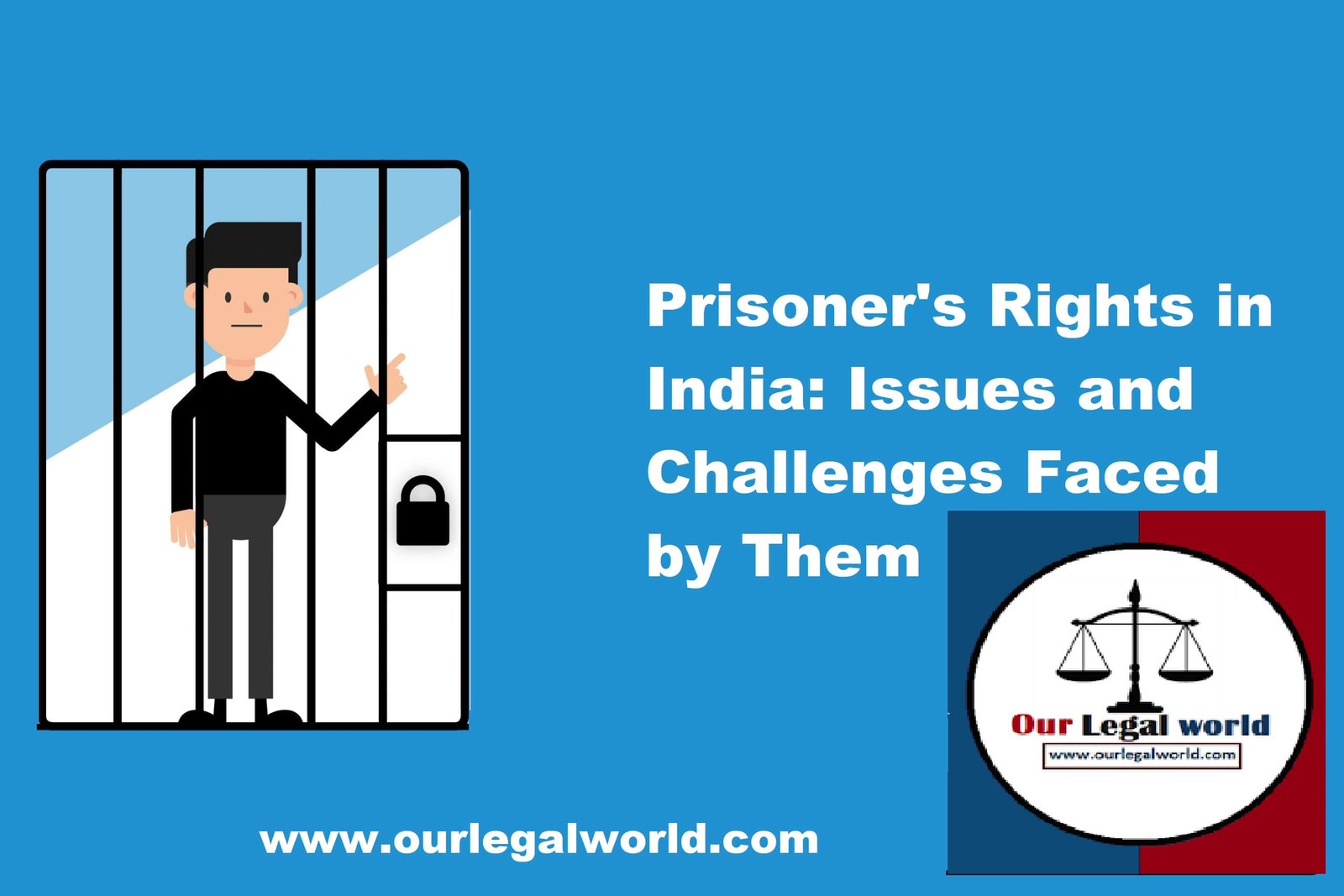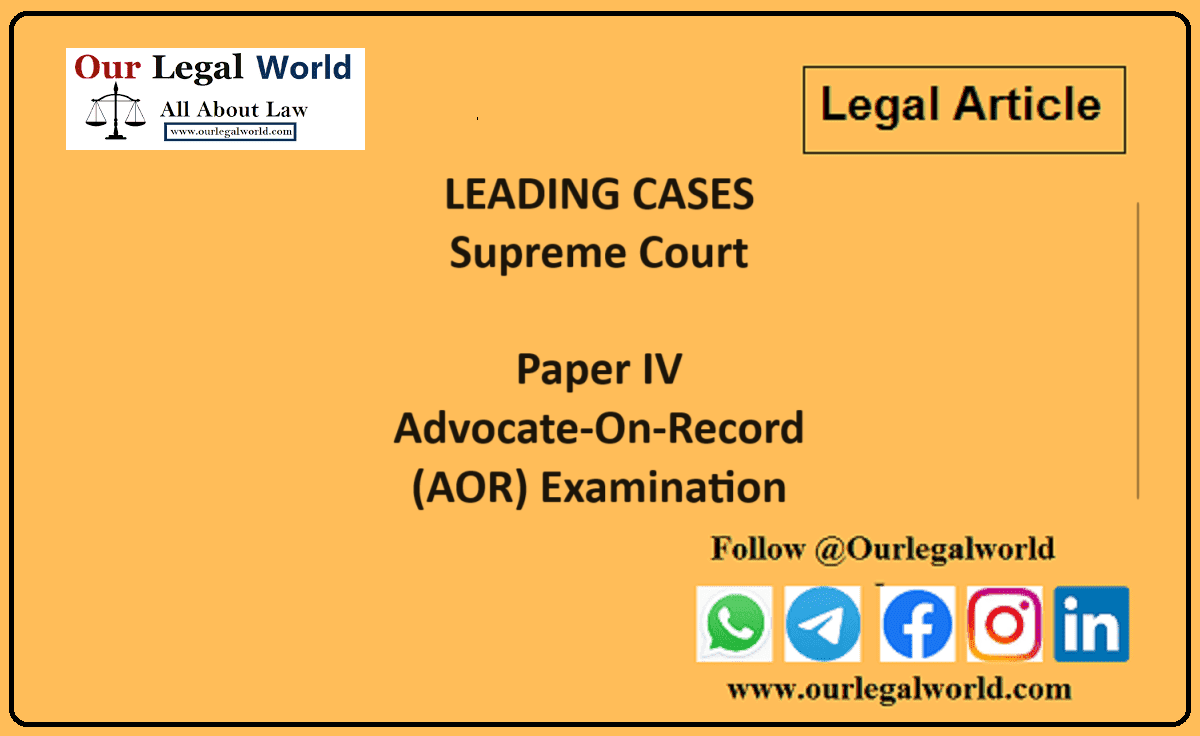Prisoner’s Rights in India: Issues and Challenges Faced by Them
WHO ARE PRISONER
A prisoner is a person who is kept in prison as a punishment for a crime that they have committed or the word prisoner means any person who is kept under custody in jail because he/she committed an act prohibited by law. A prisoner also known as an inmate is anyone who against their will is deprived of Liberty. This liberty can be deprived by forceful restraint or confinement.
Also Read: Artificial Intelligence and The Conflict with Copyright Law
Section 1 of Prisoner’s Security Act 1922 defines the term prisoner that is the word prisoner means any person for the time being in prison as a result of any requirement imposed by the court or otherwise that he be detained in legal custody.
RIGHTS OF PRISONERS IN INDIA
There are no specific rights or provisions related to prisoner’s rights in India according to the Constitution of India. But if we talk about the case of T.V. Vatheeswaran v State of Tamil Nadu (1979) in this case Supreme Court held that Articles 14,19 and 21 of the Indian Constitution are available to both prisoners as well as freemen.
Prison walls can’t seize the Fundamental Rights of a prisoner.
Prisoners can claim Fundamental Rights ( Article 14,19,21 ) but can’t claim all rights which are available to a freeman. We can understand this statement by an example, A freeman can enter into a contract anytime he/ she wants. But IN the other hand, a prisoner is deprived of this right till the time he/she is in prison. So, this is how prisoners get Fundamental Rights.
MAJOR PROBLEMS OF PRISON SYSTEM IN INDIA
OVERCROWDING
It’s the major problem of Indian prisons that gives birth to many more problems like food, clothing, health care, poor living conditions etc.
A serious and long-term solution to the problem of overcrowding in prisons needs a review of the functioning of the entire criminal justice system, including the system of arrests sentencing policies and the notion of crime.
The National Police Commission said that 60% of all arrests were either unnecessary or unjustified. The police find imprisonment as an easy solution and use a preventive section of the law, for example, Section 151 of the Criminal Procedure Code indiscriminately. The liberal use of the power to arrest contributes to the problem of overcrowding and also leads to an increase in expenditure on jails.
Another reason for overcrowding is the delay in completing cases. An important factor responsible for delaying trials is the failure of the agencies to provide security escort to the under-trial to the courts on the dates of trial hearings.
UNHEALTHY LIVING CONDITIONS
Overcrowding leads to poor living conditions in prison. Though many jails have focused on some issues like clothing, cleanliness, diet etc. then also living conditions is same in many prisons. By improving prison conditions, it doesn’t mean that prison life should be made as comfortable as home, but it means prison should be made humane and sensible for prisoners.
UNEQUAL TREATMENT AT PRISON
According to the report provided by the Human Rights countries like India and Pakistan follows a Rigid class system in prisons. According to that system, upper and middle-class people were given special privileges irrespective of the crimes committed by them.
ROLE PLAYED BY INDIAN JUDICIARY
The Supreme Court of India in the recent past has been very vigilant against encroachments upon the Human Rights of prisoners. Article 21 of the Constitution of India provides that “No person shall be deprived of his life and personal liberty except according to procedure established by law”. The Right to life and personal liberty is the backbone of Human Rights in India.
The Supreme Court of India and the High Court have developed Human Rights for prisoner’s rights by interpreting Articles 14, 19, 21, 32, 37 and 39A of the Constitution. In the case of Charles Shobraj V. Supritendent The Supreme Court clearly stated that prisoners are also human beings.
The Supreme Court of India on different occasions through its various judgements speaks about this issue and lays down different guidelines to protect the Rights. Justice VR Krishna Iyer in this case of State of MP V. Shyamsundar Trivedi said that “Convicts are not by mere reason of the conviction divided of all Fundamental Rights which they otherwise possess”.
Like you and me prisoners are also human beings. Hence, all such Rights except those that are taken away in the legitimate process of incarceration still remain with the prisoner. Those include rights that are related to the protection of basic Human dignity as well as of those for the development of the prisoner into a better human being”.
In the case of Maneka Gandhi, and Sunil Batra It has been held that the right to legal aid, speedy trial, right to have interview with friend, relative and lawyer, protection of prisoners in jail from degrading inhuman and barbarous treatment, Right to travel abroad, Right to live with human dignity, right to livelihood. Thus, the Supreme Court of India has widened the Scope of Article 21 and has held that its protection will be available for safeguarding the fundamental rights of the prisoners.
Supreme Court through it’s positive approach and activism had served and provided an effective remedy against violation of human rights. The functioning of the judiciary reveals that it has exercised its power in the most creative manner and devised new strategies for the protection of the Human Rights of the prisoners. Supreme Court of India used the strategy of Public Interest Litigation to enforce the Rights of prisoners.
HOW TO OVERCOME THOSE ISSUES AND CHALLENGES
A committee was set up in 2018 on prison reforms which were headed by retired judges of SC. The target or main aim of that committee is to look into those problems or issues which are faced by prisoners in jail and to give solutions to overcome those problems, and their special focus is the mothers and their children. The major problem like Overcrowding, shortage of prison staff and unhygienic food, recommendations on these issues were given like increasing lawyer to prisoner ratio, introducing of special courts, and avoiding adjournment. There were some unique and new suggestions like free phone calls for new prisoners in their first week of jail. Committee also recommended new kitchen facilities.
Many international conventions have condemned torture.
The judgement in one of the landmark cases of DK Basu by honourable SC instils in the mind of people about the protection of human life.
Nothing on this earth is greater than life. In the beginning, Custodial Rape was not properly
Written by Hema Kewat & Meenal Gehlot








![Tax Law Internship at Legum Attorney [Chamber of Ashish Panday], Delhi : Apply by 15th May 2025](https://www.ourlegalworld.com/wp-content/uploads/2025/05/IMG_0113-min.png)

